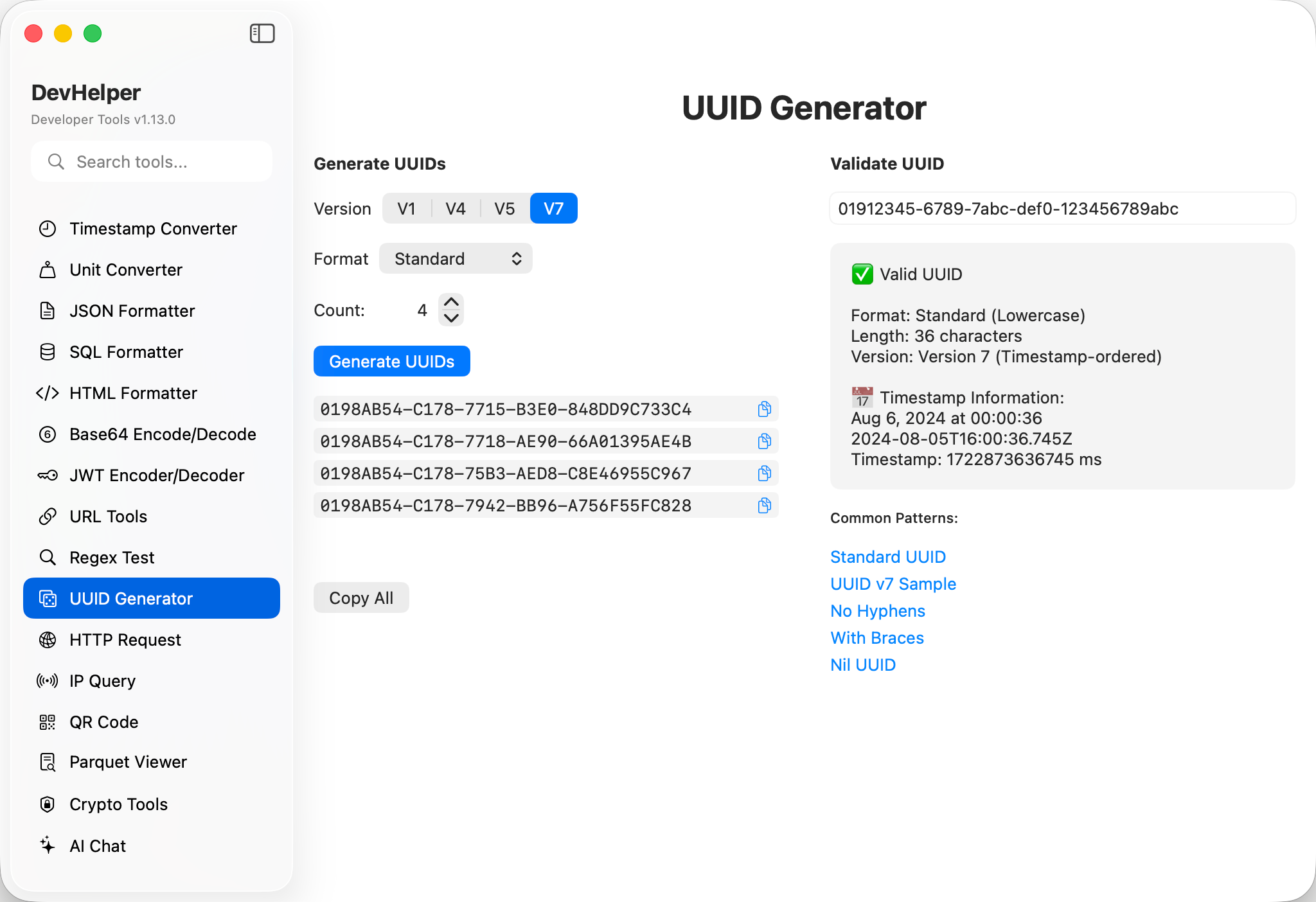v1
Time-Based UUID
xxxxxxxx-xxxx-1xxx-xxxx-xxxxxxxxxxxx
Based on: MAC address + timestamp
Use cases: Database primary keys, distributed systems, when you need sortable IDs by time
Pros: Sortable by time, includes timestamp information
Cons: May reveal MAC address, not fully random
v4
Random UUID
xxxxxxxx-xxxx-4xxx-xxxx-xxxxxxxxxxxx
Based on: Random or pseudo-random numbers
Use cases: General purpose, API keys, session tokens, most common choice
Pros: Cryptographically random, no privacy concerns
Cons: Not sortable, no embedded information
v5
Name-Based UUID (SHA-1)
xxxxxxxx-xxxx-5xxx-xxxx-xxxxxxxxxxxx
Based on: SHA-1 hash of namespace + name
Use cases: When you need deterministic UUIDs, content addressing
Pros: Reproducible, deterministic from input
Cons: Predictable if input is known
v7
Time-Ordered UUID
xxxxxxxx-xxxx-7xxx-xxxx-xxxxxxxxxxxx
Based on: Unix timestamp + random data
Use cases: Modern applications, database performance, time-sortable random IDs
Pros: Sortable, efficient for databases, no privacy issues
Cons: Newer standard, limited support in some systems
